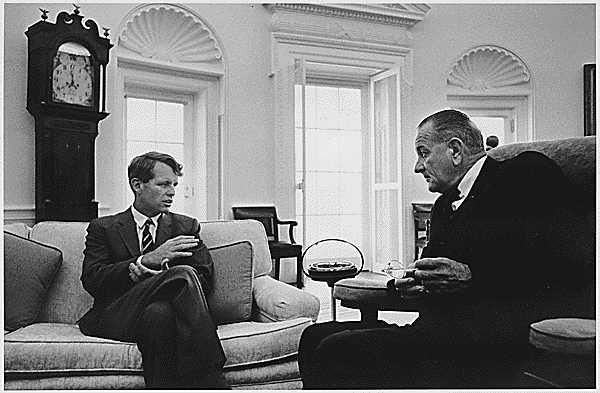Christian Jackson’s minimalist take on famous children’s book covers.
To Live and Die in L.A.
Dig this article on Raymond Chandler by Jonah Raskin over at Boom:
Raymond Chandler relished finding names for his quirky characters, including Philip Marlowe, the pipe-smoking, chess-playing private eye—a literary kinsman to Sam Spade, Dashiell Hammett’s solitary sleuth—whom I first met in the pages of fiction as a teenager and whom I have known more than fifty years. Sometimes the names are dead giveaways about the morality or immorality of the character, sometimes they’re opaque, but I’ve always found them intriguing and an open invitation to try to solve the mystery myself. In his first novel, The Big Sleep (1939) Chandler calls the bellicose gangster Eddie Mars, the smut peddler Arthur Gwynn Geiger, and the top cop Captain Cronjager. In The High Window (1942), Lois Magic is the femme fatale, Linda Conquest is a torch singer, and Leslie Murdoch is the effete son of a nasty heiress who has murdered her own husband and brainwashed Merle Davis (a wholesome girl from the Midwest and a victim of sexual assault) into thinking she’s guilty of the crime. Nice people, Marlowe observes wryly.
Born in Chicago in 1888, near the end of the Victorian era, raised in England among elite Edwardians, and transplanted to Los Angeles in 1913, Chandler saw California through the eyes of an English eccentric. A veteran of World War I who was wounded in action in France, and a child of Prohibition and Depression America, he recognized that crime was an industry in both boom and bust times, and a rich field for a writer. Then, too, as a displaced person and an alien in the Southern California world of cars and freeways, among phony and lonely people, he tapped into a vast reservoir of mass discontent. In his seven novels, all of them set in and around Los Angeles, he depicted the world as a vile place inhabited by loathsome people. A cynic, he envisioned no way to escape nastiness—certainly not by going to the movies, which, in his view, offered much the same trite boy-meets-girl story over and over again and trivialized psychological issues and social problems.
“Twenty-four hours a day somebody is running, somebody else is trying to catch him,” Chandler wrote of LA. He added that it was “a city no worse than others, a city rich and vigorous and full of pride, a city lost and beaten and full of emptiness.” Chandler loved and hated LA in much the same way that Balzac loved and hated mid-nineteenth-century Paris and F. Scott Fitzgerald loved and hated Jazz Age Manhattan.
[Featured Image Via the most cool: Daylight Noir]
Bronx Banter Interview: Pete Dexter
Bronx Banter Interview
“The truest thing in the world was that you showed who you were writing a column. He said that at his lectures, and they always took that to mean politics or how you feel about the death penalty. Which had nothing to do with it. There were as many dick shrivelers that wanted to ban nuclear sites and love their brother as there were that wanted to bomb Russia. It was almost incidental, what you had for issues. But how you saw things, how physical things went into your eyes and what your brain took and what it threw back, that told who you were.”
—From Pete Dexter’s first novel, God’s Pocket (1983)
Our man Dexter was a legendary newspaper columnist in Philadelphia and then in Sacramento from the late 1970s through the mid-’80s, but unless you lived in those towns at the time or unless you hung out in the microfilm room of your local library, it was nearly impossible to track down his work. Dexter has written seven novels—the third one, Paris Trout, won the National Book Award—and they are all in print. But until Dexter’s old friend, Rob Fleder, a longtime magazine (Esquire, Playboy, Sports Illustrated) and book editor, had the notion to compile Dexter’s journalism, some of his greatest work remained unavailable to us.
First published in 2007, Paper Trails: True Stories of Confusion, Mindless Violence, and Forbidden Desires, a Surprising Number of Which Are Not About Marriage gives us what we want—a sampling of Dexter’s work as a columnist. The good people at Ecco Press have now published a paperback edition, thus giving me an excuse to call up Pete and get him talking about his days in the newspaper business.
I got to know Pete when his last book, Spooner, was published, and I interviewed him then as part of a long-running Bronx Banter Interview series. (Last year, I interviewed Fleder for a collection he put together for Ecco, Damn Yankees. And here is an excerpt from an essay Pete wrote in that book about Chuck Knoblauch.)
What follows was put together from several recent phone conversations with Pete.
Enjoy.
Bronx Banter: What kind of reporter were you when you began?
Pete Dexter: I didn’t have a specialty or anything. I was kind of looked on as a guy who could write. I was a careful writer and a careless reporter. Reporting is a talent but it’s also just a matter of rolling up your sleeves. A guy like Bob Woodward didn’t get where he is by being charming or having a way with people I don’t think. He just did it by following all the rules and taking things as far as they could be humanly taken. That wasn’t what I wanted to do. I knew that early on. I didn’t get any satisfaction out of breaking a story. It just didn’t appeal to me.
BB: You started in the Watergate Era when Woodward and Bernstein made the whole idea of being a reporter something else, a star.
PD: Yeah, all of a sudden kids were going to journalism school so they could take down a president. It was a passing fad, I guess, but it lasted ten years anyway. You used to call them “serious young journalists.” You sign up for that, and…if you don’t have your heart in it, if that’s not compulsive in you, if you don’t feel like you have to do it, you’re probably not going to be much of a reporter. Early on I recognized that I was going to have to come from some other direction. On the other hand, I loved being part of the newspaper, I loved that feeling when big stories were breaking, though it wasn’t me that broke them.
BB: And you didn’t have a need to be that guy.
PD: No, I never wanted to be Hoag Levins, who worked for the Philadelphia Daily News. Hoag would put on black face and army fatigues and crawl up to Mayor Rizzo’s house and come away with how much the doorknobs cost and then try to figure how a guy who’d made a living as a police chief and mayor could afford an expensive house. He was wildly ambitious and he was a really good guy. But eventually he made a couple of mistakes and then something got him tripped up—I can’t even remember what it was now—some story he got wrong. They had to fire him. And that would not have been done easily cause you couldn’t help but like him and admire his energy.
BB: Was there a part of reporting, even before you had the column, the part where you’d just go out and talk to people, that you liked? Were you interested in people?
PD: Yeah, not so much for the newspaper. I used to drive around a lot in this old Jeep and I’d see somebody doing something interesting and I’d always pull off the road and go talk to them. That’s been something I’ve always done. And sometimes you hear some real strange stuff. Other times people just won’t talk to you, and that’s OK.
BB: So your natural curiosity helped you.
PD: It wasn’t a conscious thing. I’ve always loved stories. If you’re patient enough there are more people than you’d ever guess that have stories. It wasn’t deliberate but that’s what my stuff’s always been about: It’s about stories.
BB: Had you thought about wanting to have a column even before Gil Spencer arrived at the paper?
PD: That had been in my head. It was the only job outside of running the paper that I wanted. And they were not going to let me run the paper, that was pretty obvious.
BB: Did you get along with your editors?
PD: All the problems I’ve had with management, and they have been legion, were with people that feel the necessity to control you or put their two cents in. This started when I was a reporter. There’s that city editor, assistant city editor, sometimes the managing editor, that certain class of people, as part of their job they feel an obligation to change things just so that they have their own imprint on it somehow. And that’s where the rub comes because if you say, “That’s silly, that doesn’t make sense and here’s why…” you are no longer questioning their editing but you’ve confronted their power, their position. And once that starts, once you let them know you’re not just on their side, that’s where the problems always come from. At least with me. I never enjoyed the confrontations, certainly not as much as I’ve been given credit for, but that’s what it always was about. Power. My thought was you can be the nighttime assistant city editor for the rest of your life and I don’t care, you don’t have anything I want, just leave me alone.
BB: They weren’t about making the piece better necessarily.
PD: I never worked for anybody I looked up to as a writer but I worked for a lot of people that I looked up to as a newspaper guy, and if those people said something, I listened. But the ones who knew what they were doing knew enough to leave me alone in what I did, and if I stepped over a line in their world then not only was I glad for the criticism—if they’d caught some mistake that kept me from being embarrassed again—I was always grateful for that. I didn’t have a sense that if I wrote it it has to be right.
BB: Before you started a column, what columnists did you read, either in Philadelphia or around the country? Not so much that you wanted to emulate them necessarily but who got you interested in the form.
PD: This is hard to explain but when I came to Philly I was in my early thirties. I came out of Florida and had been in the newspaper business on-and-off for about two years and I didn’t know what a newspaper column was. I hadn’t read Breslin or Pete Hamill or Mike Royko. I didn’t know what they did. There were two columnists at the News when I got here, Tom Fox who wrote a column on Page Two, and Larry McMullen, who recently died. McMullen would go out in the street, hear these stories, and write them. He was from South Philadelphia and he was of that time and of that place and of that paper and I’ve never seen a better fit for a paper. When I saw that he was writing stories, that’s when I wanted to do it. He was writing five times a week and when I started I was doing that too—went to four and then to three.
BB: Did you get to know McMullen well?
PD: Oh, yeah, McMullen and I were old friends. I never felt any rivalry. The other guy, Tom Fox, was one of these little guys who walks around … someone called him the best columnist in the country—someone is always saying something like that about you—and he believed it. He’d write about some shooting and he was throwing in tough guy talk like, “He blew the faggot away.” I remember someone wrote a letter to the editor and said, “Who’s really the faggot?” And some criticism of Fox came in that letter. He was just outraged. That was pretty funny to see, at least to me. Those are two perfect examples for someone who wanted to be a columnist—I saw exactly the kind of columnist I wanted to be and the kind I didn’t want to be. It’s good to have one of each.
BB: Did Spencer give you the columnist job or did you have a test run, first?
PD: There was a little time there that I wrote one or two a week when I was still a reporter. That was a short period of time, I can’t tell you how long, a couple of months. But once he gave me a taste of it I was even harder to deal with on the city desk. There was this guy Zach Stalberg who later ran the paper and who is really a good guy, the kind of guy you’d want running your newspaper if you couldn’t have Spencer. Gil made Stalberg the city editor and a couple of months later he became the managing editor. But his present to Stalberg was giving me the column so I was no longer his responsibility. When I started the column if anyone had any problems with me they went straight to Spencer and that was good for everybody. Yeah, I think everybody was happy the way that worked out.
BB: Was it a big transition for you?
PD: It was an avalanche of sudden work. You go from the city desk where someone tells you, “Go interview the widow of this guy who just got shot,” and so you go to the movies and come back and say, “She wasn’t there,” to having to do a story every day. It was more than a small change. If you are a reporter and you’re not a good reporter there are places to hide. You can do all kinds of stuff to avoid producing. But if that column space is yours and you’ve got to fill it by definition you’ve got to fill it. That was good for everybody, too. First of all, it made me a better reporter.
BB: How so?
PD: You come to realize when you’re writing a column that the best columns—the very best ones come off your head—but if you are going to do it three times a week, some of those days you go talk to real people and by the time you get back the column writes itself. I’m thinking about that column in the book [Paper Trails] about the guy in Camden who found the head in the bag. You drive 10 minutes over to Camden, talk to this guy for half an hour, and yeah, I got lucky that day, but that was exactly what a newspaper column is supposed to be. And it was just handed to you. By that time I could write well enough the words were just there, the story was there. And that sort of thing, when it worked, was what a column was about. Most of my better columns were about that, going to actually talk to somebody.
BB: The great sport columnist Red Smith didn’t think of himself as a columnist but as a reporter.
PD: Yeah, that’s right.
BB: You said earlier that you’d drive around, stop the car, and talk to a guy. When you were doing the column, did you force yourself even more to do that because you thought, hey, I’ve got to have something to write about today?
PD: When you’re writing a column, your first question when you look at things are: Is this a column? But if I saw something interesting I’d still want to go ask about it. I’m still like that. I can’t tell you how many kids I’ve talked to who are on skateboards. Just ask them how they do what they’re doing and stuff like that. In a way, I kind of believe that thing of, there are no stupid questions, although God knows I get asked a lot of them. But to me, if you don’t know something and you’ve wondered about it, why not find out?
BB: Did you ever come across something that you found interesting but felt was too big to be a column?
PD: Yeah, but you could usually turn it into a three-part column or write about the same thing for three days. Sometimes that couldn’t be done and yeah it’d be a size you couldn’t handle.
BB: Did you talk to Spencer or anyone else about what you were going to write about beforehand?
PD: No. Good Christ. No.
BB: Did you ever junk one? Or just go with something you didn’t think was that good?
PD: You can write a letters column, you can find something else to do when it’s not going your way but that didn’t happen very often. What you really need is your voice being there three times a week.
BB: How long did it take to develop your voice or style?
PD: The voice was there from the get-go. That goes back to basic writing. If you’re thinking about developing your voice you’re thinking about the wrong things. That should just be—
BB: Like your speaking voice—
PD: You don’t want to be conscious of it. It just happens, at least that’s the way I think. Jeez, I’m looking at my dog outside and he’s taking like the third crap of the last two hours. … Probably shouldn’t have given him that pork chop. We have a rule against giving them pork. Shit.
BB: Kosher, huh?
PD: Yeah.
BB: What about subject matter? Did you ever think, Oh, I’ve written three heavy pieces so far this week; I want to change it up with something light?
PD: No. Whatever came. Once, early on in my column writing, I wrote a piece, I can’t remember what it was about exactly, a guy’d lost his cat and I talked to him for a little while. A guy from one of the neighborhoods. When you write a column you get your detractors. And I got a letter from someone who said that I ripped off a Hemingway short story, where that was a line, something “and the fact that cats that can take care of themselves was all he had.” And I had. Christ knows it wasn’t conscious. I went back and looked at the story. It absolutely looked intentional and it wasn’t. It wasn’t enough on the nose where anyone could say it was plagiarism or anything but the idea of it, I sure could see why the guy said what he said. That’s the only time something like that ever happened to me. And I don’t to this day know … I know that it wasn’t intentional. I really can’t say much more about it but it was there and the idea was behind a short story that Hemingway had written and one that I’d read in college.
BB: Did you write back to the guy?
PD: Probably talked to him. I called people, I didn’t write letters much. There wasn’t much to say, really. But he did have a point. So when years later I heard that Doris Kearns Goodwin was accused of plagiarism … I guess all I’m saying is that I’ve got some sympathy. When you’re writing enough, when you’re writing everyday something like that can creep into your stuff without knowing you’re really doing it. I know it was only once and nobody ever mentioned anything else. But it bothered me.
BB: Did you read the letters that were sent to you by readers?
PD: Read them? Sure.
BB: Did you enjoy them?
PD: Eh, when they were funny. Twenty a day was a big day, six letters a day was predictable. Some were funny. Sometimes they had stories and that could be valuable. But most of the time they were either agreeing with you and disagreeing with you and who cares?
BB: You ever wake up and say, “I got nothing?”
PD: No. There’s always something. I took it fairly seriously but I was always doing enough stuff. If something funny wasn’t going on or something interesting wasn’t going on I could usually do something bad enough that I could write about it the next day.
BB: In your own life?
PD: Yeah. I ended up with an FBI guy at a bar one night and I bet him that I could throw a case of beer across Pine Street. The cops showed up. So you had the cops and the FBI guy and me and everyone from Dirty Frank’s out there in the street and it looked like a riot … and that makes a nice little column.
BB: You said earlier that other than running the paper writing a column was the only job you wanted. After two or three years of doing the column, did you feel like you’d found your calling, were you happy with it?
PD: Yeah, I was happy but I didn’t feel like that was it. I would have been probably a lot better off, if you call what I did a career—whatever this is—if I’d devoted myself entirely to that space in the Philly Daily News or gone to New York or stayed with newspapers. I would have definitely been a better newspaper columnist. And who knows, you have to do what makes you happy at the time. I don’t regret any of that. I don’t regret not being in newspapers but there are sure days when I miss it.
BB: The immediacy of it?
PD: I don’t know. I just liked being in the city room, I liked the people I worked with—some of them anyway. It was just nice. You’re—
BB: Part of something.
PD: And an important part of it and that makes a difference.
BB: Writing a column sounds a whole less solitary than writing novels.
PD: Oh, yeah. There’s no comparison.
BB: Did you write the column at home or go in to the paper?
PD: No, I went into the paper every day. If I didn’t have a column the next day, I went in anyway just to see what was going on.
BB: So it was a social thing, then.
PD: Oh, yeah. I couldn’t help it.
BB: Was it like a locker room?
PD: Yeah. I was always kind of working. I mean, I didn’t write a column every day but I always went in to see what’s going on and that’s work in a way. Yeah, I just liked being around those people, I liked to see what people were doing. Some of them I still think about to this day and wish I had contact with. There were a bunch of real good reporters.
BB: Do you keep in touch with any of them?
PD: There was a guy named Bob Fowler at the Inky [the Philadelphia Inquirer] that I still talk to once in a while and when I go back there I look up a guy named Gehringer, Dan Gehringer, he’s a real good writer, who I knew from back in Florida. But for the most part, no. No, I really don’t, that’s the truth.
BB: Did you hang out and have drinks with copy editors and reporters?
PD: Eh, not too much. Once in a while, a drink with somebody. For most of that time I wasn’t in the bars at all once that thing happened in South Philadelphia, that’s when I started writing novels and I didn’t have the time or inclination for the bars anymore.
BB: When you were doing the column did you then start to read other guys like Breslin or Hamill?
PD: I’d see Breslin’s stuff and Hamill’s stuff once in awhile. A guy like Breslin, he was a columnist. And that was in spite of the The Gang That Couldn’t Shoot Straight. That’s what he was. And he never was much good at anything else that I know of.
BB: You’ve said before that you never had ambition to write novels, but after the first three, you were still writing the column. Did writing fiction inform the nature of how you wrote the column?
PD: No, I don’t think so. I’d just sort of get up and do what was in front of me that day.
BB: Did you ever go to the office to work on a novel?
PD: No, I couldn’t do that there. That’s a separate deal. I was never conscious of anything going on intentionally. It’s a funny thing to say. Every place I ever went I stumbled into accidentally. Maybe one thing led to another but not intentionally.
BB: So you didn’t have a grand plan?
PD: At some point I decided I was done with newspapers but …
BB: Yeah, before that: What was it like leaving Philly and going to the Sacramento Bee?
PD: Oh, fuck, it was the worst thing I ever did professionally. I went there because the guy that ran the paper was an old friend of mine. I’d rather not get into that, but the whole place smacked of an office environment, a business environment. I wasn’t there that long, but when I left they asked me to continue to write up in Washington State where I lived but you can’t be a local columnist and not be local. And the truth is when you’re writing well, the only columnists are local columnists. National columnists are something different. There aren’t as many stories. It’s more reports and views. Where the best columns are just there, they’re just stories. For me, anyway.
BB: In order to be a good columnist to you need to have a basic sense of outrage about things?
PD: I think different guys do it different ways. It’d just wear me out to go in the office every day outraged. And you shouldn’t do that now that I think about it because that ruins the taste for when something real comes along. You can’t go at it like one of these television guys who every night has some breaking news about how bad Obama’s fucked up or something. When you’re always outraged, it’s like the boy that cried wolf and it’s too much. It can be entertaining for someone who is reading the paper for the first time but if all you get from that space is outrage pretty soon nobody believes it, I don’t think. And if it does it appeals to people who are outraged by nature and want to be outraged more.
BB: So everything changed for you as a columnist once you Philly.
PD: It was never the same. I mean, Philadelphia is probably the best place of them all to write a newspaper column. The place is so rich. I missed that. And the paper was so open to what I had to offer, way more than any other paper in the country would have been. And Spencer was such a good guy about it. I don’t think there was a better place to work than the Philadelphia Daily News. And I left it … for reasons that don’t make any sense to me now. I left it ’cause it was time to do something else, I guess. But if I was going to stay in newspapers I’d made a terrible mistake.
BB: You were a columnist for about a decade. Are there guys that get better after 15 years or do they create a persona and then there’s a cap for how far you can go?
PD: Oh, no, you can get better. If you have initiative, if your interest is in the paper and the stories themselves, if you’re a newspaperman in your heart, you continue to get better and love it. I think at the center of things, as much fun as it was for me, I wanted to do something else.
BB: Why does it sound like you have regret about it?
PD: I’m just sorry because it was so much fun. There’s good things and bad things about anywhere but there was an awful lot of good things about that place, Philadelphia. And in that way I’m sorry we left.
BB: When you go back, is it a different place?
PD: No. The paper’s not the same, I’ll tell you.
BB: It’s funny, you could have stayed at the paper and then you’d be going through all these cutbacks and changes.
PD: Oh, I’d be way more unhappy. I mean I get sad about it, I get melancholy about it, but don’t get me wrong, I wouldn’t go back and change it.
BB: There are a few longer magazine piece in Paper Trails. You had a column at Esquire for a few years but also wrote takeout pieces for Inside Sports. Did you enjoy writing for magazines?
PD: Not really. That’s an awful lot of writing for—it was an awful lot of work and in the end all you have is a magazine story. As much as I like stopping along the road and talking to somebody I don’t like invading their lives, which is what you need to do. You have to spend a couple of weeks around Jim Brown to begin to get anything. I’ve been on the other side of it, having a guy hanging around me taking notes, and I don’t like it. And I don’t like doing it to someone else for that reason.
BB: How is newspaper reporting different?
PD: You can’t hang around them at all, really. I mean, Christ, I don’t know how many columns I wrote about Randall Cobb and his quest to be the champion of the world but Cobb and I would have been friends anyway. That was a sure-fire column at least once a month, sometimes more than that.
BB: There’s a funny Cobb story about a rental car in Paper Trails. The four columns you wrote on Cobb during the week he fought Larry Holmes in Houston for the heavyweight championship aren’t in the book but I really like them. They were so emotional.
PD: Yeah, it was a sad time.
BB: Because of the Holmes fight?
PD: Yeah, it’s hard to watch somebody realize the dream of his life is never going to happen and he’s doing everything he can and it’s … you know, you really have to set your mind to do something like that. In the first place, you have to lie to yourself all the time. And then to see it all spilled out in front of you like it was, that it wasn’t going to happen … it was sad. He really tried hard.
BB: Did you feel guilty at all?
PD: No. Why?
BB: Because he’d broken his arm in the bar fight you’d been in together the previous winter in South Philly.
PD: No, that went beyond … that wasn’t guilty. I felt bad about it but he and I’d been through so much other stuff, and it just, um, what was going on between me and Randall was a lot closer to—I don’t want to say brotherhood, exactly—but we’d been … no, I didn’t feel guilty about it. But I wasn’t one of the guys … I mean, there was 5,000 people in Philadelphia thinking they’re Randall Cobb’s best friend. Because he was nice to everybody and he would tell people stuff and they would go around thinking that he’d told them something real. But he and I were friends in a different way than that. I understood and he understood exactly what happened that night.
BB: What exactly was that?
PD: No, it’s too complicated. I can’t go into that anymore than I already have 2,000 times because there’s something at the bottom of it between Cobb and me, something that if I tried to go back and explain it, it all just washes over me again. He’s just so … like I said, those were such sad times in the way that I mentioned. What you’re asking about is going into a place that I don’t talk about with anybody. It’s private in some way between me and Cobb in a way that probably doesn’t lend itself very well to words.
BB: Shit, I’m sorry if I made you uneasy even asking about it.
PD: No, it’s alright. I’d gotten hit that night in the bar and I was unconscious. It’s just … that moment when I wake up and Cobb was the only guy there and I wanted to get him—something happened there between us that I’ve not, something I can’t revisit easily, let’s put it that way. But don’t feel bad about asking me, that’s what you’re supposed to do.
BB: Did you guys stay close after the Holmes fight?
PD: Yeah. I mean, he’d started moving away before he fought Holmes. About a month before he fought Holmes he disappeared for a while. I don’t know where he was training but I couldn’t get through to him. He got rid of his manager and his trainer and showed up with a different guy at the fight. And those people were … I mean, everybody was after Cobb as a meal ticket. Money was what they all wanted. He’d been carrying a hundred people around on his back forever, y’know, being everybody’s best friend. If he had $10 and somebody asked him for it, he gave it to them. Whatever he had they could have and he was always like that. And it finally, I think it got to be too much. Christ, he didn’t care what he signed, contracts and shit like that, he never paid any attention to that. He and I kind of lost touch for a while but you don’t give up what you feel about somebody like that.
BB: So when you and Rob Fleder went through the material for Paper Trails did you read tons of columns that you’d forgotten about?
PD: Oh sure. And I’m sure there were tons more than Fleder passed on I still haven’t seen or remember. You got to remember it’s more than a thousand columns, at least. It’s kind of like finding an old diary or something.
BB: Did you enjoy reading through them?
PD: Uh, sort of. Fleder did the work. Fleder’s the guy that read them all. He’s the reason the book is there. He’s absolutely as much a reason that book exists as I am. It’s a funny thing that makes you smile when you look at it. It was such a nice thing for him to do. It wasn’t like we were going to get rich or anything. God, it’s just the nicest thing you can do for somebody in a way. When I look back on the book, I think about Fleder and what a great thing that was to do for me.
BB: In Yiddish they call that a Mitzvah. A blessing.
PD: OK.
BB: A nice thing to do.
PD: And that’s what this is, I guess. A mitz-vah.
You can buy Paper Trails here or download it for to your phone or tablet here. Source photo by Marion Ettlinger, from the back cover of Dexter’s fourth novel, Brotherly Love. Background photo via Getty.
In the Name of The Father
Over at the Los Angeles Review of Books, David Wolpe reviews Greg Bellow’s memoir, Saul Bellow’s Heart:
After James Atlas’s 2002 biography, widely panned, with its portrayal of an altogether unappealing philanderer, is there balm in Gilead?
“Our father was always easily angered, prone to argument, acutely sensitive, and palpably vulnerable to criticism.” Reading this sentence in Greg Bellow’s new memoir, Saul Bellow’s Heart, one remembers the saying attributed to a French King, “I would rather be killed by my enemies than by my children.” Maybe we should have stuck with Atlas.
But Greg (permit me the first name, to distinguish from his father) has done something complicated and remarkable. He has spared none of the unsavory parts of his father’s character and still enabled us to understand why this man could generate, throughout his life, so much love. Greg expresses anger along the way — this book does not pull punches with the characters who moved through Bellow’s life — without the rancorous bitterness that suggests still unsettled reflections. Greg has opened his own heart. If there is any truth to the old adage that you judge a parent by the child, Greg is a testimonial.
[Photo Credit: Ann Street Studio]
Not Fade Away
Dwight Garner profiles John Le Carre in the Times:
Yet John le Carré’s greatest invention is easily John le Carré himself. Born in 1931 in Poole, a sprawling coastal town in Dorset, he is a product of a childhood both unusual and enviable — if you happen to be a writer. It made him suspicious of charm of any sort and gave him a limitless fascination with humans and their secrets.
Le Carré, as most of his fans know, is a son of a great, debonair English con man. His father, Ronnie Cornwell, born into mundane middle-class life, remade himself into a funny, gracious man who found that he could talk anyone out of anything, and did so. He was friendly with the Kray twins, the notorious and photogenic London gangsters. He was jailed for insurance fraud. He always, le Carré said, had a scam or two in the works.
“In his high days, he had a racehorse at Maisons-Lafitte outside Paris, and dancing girls, and he’d go whizzing off to Monte Carlo with the former lord mayor of London to stay in grand style at the Hotel de Paris,” le Carré said. “His social rise was extraordinary.” When things went badly, le Carré recalls, “not only were the police looking for him, but the boys were. We had to put the cars behind the house, keep the lights out and so on.”
Le Carré likes to cite a passage from the autobiography of Colin Clark, the son of the art collector Lord Clark, who wrote about what it was like to be taken in by le Carré’s father: “He was your favorite uncle, your family doctor, Bob Boothby and Father Christmas rolled into one.” He could, Clark wrote, “fix anything” and did. “Ronnie invited me to Royal Ascot and gave me a few good dinners. Then he showed me a piece of derelict property, which he did not own, promised to double my money in three months and took the lot.”
Tipsy
If you’ve never read John O’Hara’s first novel, do yourself a favor. Penguin Classics has published a new edition of the book with an introduction by Charles McGrath, excerpted over at The New York Review of Books:
Originally published in 1934, John O’Hara’s Appointment in Samarra is still the only American novel I know that begins with a scene of a married couple—Luther and Irma Fliegler—having sex and on Christmas morning, no less. Later in the book, another married couple—Julian English, the novel’s protagonist, and his wife, Caroline—make love in the middle of Christmas afternoon. Julian has been dispatched on a disagreeable errand, and Caroline rewards him by waiting in their bedroom in a black lace negligee she calls her “whoring gown.” About their lovemaking, the novel says, “she was as passionate and as curious, as experimental and joyful as ever he was.”
Before O’Hara, sex in American novels—polite novels, anyway—was mostly adulterous, not something that proper married women engaged in, or if they did, they weren’t known to enjoy it. Appointment is a genuine love story, charged with eros but stripped of sentimentality, and the relationship between the Englishes is more convincing and more satisfying than that of, say, Gatsby and Daisy in The Great Gatsby, or Frederic Henry and Catherine Barkley in A Farewell to Arms. Though unfaithful to her, Julian can’t stop loving Caroline, and after O’Hara devotes a whole chapter to her intimate thoughts and sexual explorations before marriage, the reader can’t help falling a little in love with her, too. Caroline, for her part, reflects at the end of the book: “He was drunk, but he was Julian, drunk or not, and that was more than anyone else was.”
The speed with which the book was written may account for the urgency of its storytelling. O’Hara began it in December 1933, when he was just twenty-eight, and wrote it in something like white heat, finishing in a little under four months. Set in the fictional town of Gibbsville, Pennsylvania, a lightly disguised version of Pottsville, where O’Hara grew up, the entire action of Appointment in Samarra—Julian English’s whirlwind of self-destruction—takes place in just thirty-six hours, and its breakneck pace is startling and exciting. Even on a second reading, when you know what’s going to happen, you tear through it still not quite believing in what’s just ahead and what’s already been established by the novel’s epigraph, taken from W. Somerset Maugham’s play Sheppey (in which Death speaks of meeting a merchant in Samarra): an appointment in Samarra, we know from the beginning, is an appointment with death itself.
It’s Mostly the Voice
Last spring Tyler Plimpton wrote this piece about his father in The New Yorker:
My father’s voice was like one of those supposedly extinct deep-sea creatures that wash up on the shores of Argentina every now and then. It came from a different era, shouldn’t have still existed, but nevertheless, there it was—old New England, old New York, tinged with a hint of King’s College King’s English. You heard it and it could only be him.
So it was that George Plimpton’s accent could not be imitated. On “Saturday Night Live,” even the great impersonator Dana Carvey couldn’t get it quite right. Alan Alda, portraying my dad in the movie version of “Paper Lion” (his book on playing quarterback for the Detroit Lions), didn’t bother with his voice at all. He got the personality totally wrong, too. Alda’s version was always angry or consternated, like a character in a Woody Allen film, while my dad, though he certainly faced hurdles as an amateur in the world of the professional, bore his humiliations with a comic lightness and charm—much of which emanated from that befuddled, self-deprecating professor’s voice.
Jigsaw Puzzle
If you are a certain age and grew up in New York the name Pete Fornatale means Rock n Roll on FM radio. Fornatale passed away last year but he wasn’t just a legendary DJ, he was a writer, too. His final book is on the Stones, an entertaining oral history, combining original interviews with previously published material.
Here’s an excerpt, concerning a pivotal moment in the group’s evolution.
Check it out, enjoy, and then go pick up the book.
From 50 Licks
By Pete Fornatale
At the start of 1968, the Stones were a group in turmoil, coming off what was mostly a lost year. The rift between Brian and the rest of the band was deepening. Brian had been abusive to his girlfriend of two years, Anita Pallenberg, and she ended up leaving him for Keith. Did Keith feel guilty about this?
KEITH RICHARDS: Brian, in many ways, was a right cunt. He was a bastard. Up to a point, you could put up with it. In the last year or so, when Brian was almost totally incapacitated all of the time, he became a joke to the band. It was the only way we could deal with it without getting mad at him. So then it became that very cruel, piss-taking thing behind his back all the time . . .
Things only got worse after Jones’s second bust for marijuana possession in May. Now, not only was Brian in danger of no-showing gigs in the UK, but his legal problems might prevent him from joining the band if and when they decided to return to America.
Keith Richards: There was no immediate necessity to go through the drama of replacing Brian because no gigs were lined up. We first had to recognize the fact that we needed to make a really good album. After Satanic Majesties we wanted to make a STONES album.
And that’s where Jimmy Miller came in.
GLYN JOHNS: Jagger came to me after Satanic Majesties and said, “We’re going to get a new producer, an American.” I thought, “Oh my God, that’s all I need. I don’t think my ego can stand having some bloody Yankee coming in here and start telling me what sort of sound to get with the Rolling Stones.” So I said, “I know somebody! I know there’s one in England already and he’s fantastic,” and he’d just done the Traffic album: Jimmy Miller. And it was a remarkably good record he made, the first record he made with Traffic. I said, “He’s a really nice guy.” I’d met him, he’d been in the next studio room and I said, “I’m sure he’d be fantastic.” Anything but some strange lunatic drug addict from Los Angeles. So . . . Jagger actually took the bait and off he went, met Jimmy Miller and gave him the job. And the first thing Jimmy Miller did (laughs) was fire ME. ’Cause he’d been using Eddie Kramer as an engineer. And so, naturally, quite obviously, he wanted to use his own engineer, the guy he knew.
Miller was exactly what they needed at that time. His roots-based approach allowed the Stones to do what they did best.
ANDY JOHNS: Jimmy Miller made the Stones into the band they should have always been, and tried to be in the beginning.
BILLY ALTMAN: He was a tremendous producer. Mick especially was very impressed with the last Spencer Davis album and that first Traffic album that he had done. He was able to get them a very big sound that they had never really managed to have prior to that. I don’t know how much of that was attributable to Andy Oldham nominally being their producer up until then, but I think on a sonic basis, Miller really got to the heart of what they sounded like as a band, really honing in on Keith’s guitar and Charlie Watts’s drumming.
EDDIE KRAMER: I think they’d had enough at that point. Thank God they found Jimmy Miller. Certainly Mick and Keith and the boys had heard what we’d done with Traffic. And it was amazing. When you put Dear Mr. Fantasy up against Satanic Majesties it completely blows that away. So the Stones probably think, “Who is this guy Jimmy Miller?”
If not for him, I don’t think the Stones would be in the place they are today. Because what he did is that he went to the heart and soul of where they came from. And he was so adept at milking the inner psyche of the band. And he was so clever at production. And he’s the guy I’ve always modeled myself after in terms of how to get a session going, how to make the artists really get excited about what they’re playing. Even to the point where Charlie couldn’t play the drum part the way he was hearing it, he would go and sit in on the drums.
ANDY JOHNS: Jimmy was an extremely talented man. His main gift I think was his ability to get grooves. Which for a band like the Stones is very important. Look at the difference between Beggars Banquet and Satanic Majesties. He put them right back on the rail. So he was quite influential then and came up with all sorts of lovely ideas for them. In fact that’s him playing the cowbell at the beginning of “Honky Tonk Women.” He sets it up.
ROBERT GREENFIELD: Jimmy Miller was a lovely guy. He had this great disposition. And if you want to talk about his greatness as a producer, look at his Traffic albums. What Jimmy brought to the Stones was groove. Jimmy gave them a soul groove, a rhythm groove that they never had before.
JIMMY MILLER: Musically they were just coming out of their psychedelic period, which hadn’t been too successful for them, and I think that was lucky for me, because I didn’t insist that they change direction but they were ready to do so, as was evident from the new songs that they played me. What they had written was rock ’n’ roll, yet I subsequently received a lot of credit for getting them back on course, so I benefited a lot from being in the right place at the right time. There again, I think it’s fair to say that being American also helped, because—as was the case with many successful British bands during that era—they had been raised on American records. As things turned out, it was not always easy—they could take a long time over certain things—but it was always a pleasure, especially when they’d eventually hit those magic moments as they inevitably seemed to do. The first of those just happened to be on the very first track that I produced for them, “Jumpin’ Jack Flash.”
KEITH TALKS “JUMPIN JACK FLASH”
“Jumpin’ Jack Flash” was released as a single in 1968 and remains one of the Stones’ most identifiable songs. It’s also significant in that it essentially kicks off the next period in the band’s existence, Rolling Stones “Mach Two,” as Keith has called it. In Life, Keith tells the story of how the tune got its name:
KEITH RICHARDS: Mick and I had been up all night, it was raining outside and there was the sound of these heavy stomping rubber boots near the window, belonging to my gardener, Jack Dyer, a real country man from Sussex. It woke Mick up. He said, “What’s that?” I said, “Oh, that’s Jack. That’s jumping Jack.” I started to work around the phrase on the guitar, which was in open tuning, singing the phrase “Jumping Jack.” Mick said, “Flash,” and suddenly we had this phrase with a great rhythm and ring to it. So we got to work on it and wrote it.
Keith gives himself some of the credit for the reinvention of the Stones’ sound as well.
KEITH RICHARDS: “Jumpin’ Jack Flash” and “Street Fighting Man” came about because I had become fascinated by the possibilities of playing an acoustic guitar through a cassette recorder, using it as a pick up, really, so that I could still get the crispness of an acoustic—which you can never get off an electric guitar—but overloading this tiny little machine so the effect was that it sounded both acoustic and electric. Technology was starting to increase in sophistication, but I just wanted to reduce it back to basics. I bought one of the first cassette machines—a must for a budding songwriter—and then day in, day out recorded on it. Then I began to get interested in the actual sound of the machine, how close you could put the microphone to the guitar and what effect you could get out of it . . . When we were in the studio I would bring in that little Philips cassette recorder, get a wooden extension speaker, plug that into the back of the recorder, shove a microphone in front of the speaker in the middle of the studio and record it. We would all sit back and watch this little microphone record the cassette machine in the middle of the studio at Olympic, which was the size of Sadler’s Wells. Then we’d go back, listen to it, play over it, mash it up, and there was the track.
EDDIE KRAMER: We used Jimmy Miller’s Wollensak—a cassette machine with a microphone in it. We put it on the floor of the studio and we recorded Keith’s guitar, and I believe Charlie was just using a brush or a stick on the snare for the backbeat. After we cut the track on the cassette machine, we played it back on a little speaker, then rerecorded that on one track of a four-track machine. That was the guide track, then everybody overdubbed to that. When you hear the beginning of the song, you can hear the amount of wow—on a cassette machine when you play the straight chord you hear “bo-wow wowwow” because the movement of the tape against the pinch wheel was never very steady. It wasn’t a professional machine . . . You hear the movement of the pitch, which is the reason that it has this funky sound which everyone dug at that time.
The resulting album would go on to be one of the Stones’ collective favorites. Its back-to-basics approach was natural for them.
BILL WYMAN: It’s probably because we listened to and played so much early blues material. Musically, it was very simple, so you had to put a lot of feeling into it to make it work. Whenever we rehearse and learn new numbers, every other thing we play is a jam on an old Elmore James or Muddy Waters or Chuck Berry thing. I know a lot of people say, “What are you playing that old stuff for?” But we’re not doing it for sentimental reasons, we’re doing it to retain the feeling of those blues and R&B things.
You can’t have everybody flying off everywhere and showing off your chops. Besides, our chops aren’t always that good! I think the great thing about the Stones is the simplicity of it—that slightly ragged rhythm that sounds like it might fall apart by the next bar but never does. We always have scrappy endings; we play with kind of a pulse that fluctuates between being slightly behind and slightly in front of the beat but it swings like that. And it works for us. I hate bands that play on eighths or sixteenths, there’s no feel there, nothing seems to be coming from inside them.
On the contrary, the bluesy feel of Beggars Banquet still resonates. One album track that stands out is “No Expectations.”
BILLY ALTMAN: “No Expectations” to me is one of the great Stones songs in their entire body of work. And it really stands out to me because it’s one of the last things of substance that Brian Jones was able to contribute to the band, his slide playing on there. It’s Robert Johnson, it’s Delta blues, it’s everything about their connection to the American blues. For me, that remains one of the high points of the album.
MICK JAGGER: That’s Brian playing [slide guitar]. We were sitting around in a circle on the floor, singing and playing, recording with open mics. That was the last time I remember Brian really being totally involved in something that was really worth doing. He was there with everyone else. It’s funny how you remember—but that was the last moment I remember him doing that, because he had just lost interest in everything.
BILLY ALTMAN: Even though Brian was already out the door, there’s more of him on there than he’s usually given credit for. His spots are few, but they are significant. In addition to his work on “No Expectations,” his sitar on “Street Fighting Man” and his harmonica on “Prodigal Son” give him a real presence.
With Brian fading toward the background, other musicians stepped up as well.
BILLY ALTMAN: Nicky Hopkins added a tremendous amount to Beggars Banquet. I’m not sure how much of this was Jimmy Miller, but it seems like someone realized that they need some other voice instrumentally besides Keith’s guitar, and Nicky Hopkins is the secret weapon of Beggars Banquet and then again on Let It Bleed. He is really one of the great unsung heroes of British rock during that period. And the combination of Nicky Hopkins and Ian Stewart during that period works wonderfully and adds dimension because Stewart is such a good boogie-woogie blues pianist.
ANDY JOHNS: Nicky is on everything. He was the best and the greatest. God bless Nicky Hopkins. He added so much to that band. Sometimes you wouldn’t really notice it. But if you take the piano out then the house of cards collapses a bit. He was always coming up with gorgeous little melodies. Earlier, “She’s a Rainbow.” That’s Nicky. Of course he was doing a lot of things like that. Plus he was extremely rhythmic. People don’t remember him for being rhythmic. But he was.
When people think of Nicky Hopkins they think of his right hand. But he would make the groove happen sometimes. If you took him out, it’s “Oh, what happened here?” Which is normal. If they are listening to him they are gonna play around him. Or with him. And if you take one of those elements out: “What happened here?” It’s music. See. That’s how it works.
The album’s focal point became one of the Stones’ most famous songs, “Sympathy for the Devil.”
CHARLIE WATTS: “Sympathy for the Devil” was tried six different ways. I don’t mean at once. It was all night doing it one way, then another full night trying it another way, and we just could not get it right. It would never fit a regular rhythm. I first heard Mick play that one on the steps of my house on an acoustic guitar. The first time I heard it, it was really light and had a kind of Brazilian sound. Then when we got in the studio we poured things on it, and it was something different. I could never get a rhythm for it, except one, which is like a samba on the snare drum. It was always a bit like a dance band until we got Rocky Dijon in, playing the congas. By messing about with that, we got the thing done.
COUNTRY HONK
Beggars Banquet also featured another new, rootsy element for the Stones: country music.
KEITH RICHARDS: It is the other side of rock ’n’ roll. Rock ’n’ roll, basically, is blues, and then put in a little bit of white hillbilly melody. It’s that lovely coming together of one culture hitting another which is what music’s always about. What I’ve always loved about rock ’n’ roll is that it’s a beautiful synthesis of white music and black music. It’s a beautiful cauldron to mix things up in.
Keith’s budding friendship with Gram Parsons was the inspiration.
KEITH RICHARDS: I first met Gram in 1968, when the Byrds were appearing in London . . . I knew the Byrds from Mr. Tambourine Man on . . . But when I saw them with Gram, I could see this was a radical turn. I went backstage, and we hooked up. Then the Byrds came through London again, on their way to South Africa. I was like, “Man, we don’t go there.” The sanctions and the embargo were on. So he quit the Byrds, right there and then. Of course, he’s got nowhere to stay, so he moved in with me.
Others, notably Chris Hillman of the Byrds, have doubted that apartheid had anything to do with Parsons’s decision to leave the band. Hillman went so far as to suggest that Parsons was a Rolling Stones groupie. A friend of Parsons and employee of the Stones from that time refutes this idea:
PHIL KAUFMAN: Nothing could be further from the truth. Gram was one of the only guys in the world who hung out with famous people like the Stones and who carried his own weight. If anything, Keith was the “groupie” of Gram. Gram was teaching the Rolling Stones country music. Quite often we’d just sit around the house—Gram, Mick, Keith, and I. They had been to Ace Records and bought every country album they could find: George Jones, Merle Haggard, Dave Dudley, Ernest Tubb—you name it. Gram would say, “Here is an example of this,” and he’d tell me which record he wanted and I’d play the record. They’d listen to it, tap their toes to it, listen to the chords, and then Gram had me play George Jones, . . . That was what Gram was doing. I recorded Gram and Keith singing together, but sadly those tapes are long gone.
Here’s Mick’s take on the Stones first foray into country:
MICK JAGGER: As far as country music was concerned, we used to play country songs, but we’d never record them—or we recorded them but never released them. Keith and I had been playing Johnny Cash records and listening to the Everly Brothers—who were SO country—since we were kids. I used to love country music even before I met Keith. I loved George Jones and really fast, shit-kicking country music, though I didn’t really like the maudlin songs too much . . . The country songs, like “Factory Girl” or “Dear Doctor,” on Beggars Banquet were really pastiche. There’s a sense of humor in country music anyway, a way of looking at life in a humorous kind of way— and I think we were just acknowledging that element of the music.
BILLY ALTMAN: There is a lot of humor in the country songs on Beggars Banquet. At the time, I’m not sure how much of it any of us got. Back then, with everything that was going on with the tensions of 1968, they just seemed kind of weird. But listening now, “Dear Doctor” and “Factory Girl” are a lot of fun. And I think that’s one of the nice things about the album. They provide a balance against things like “Sympathy for the Devil” and “Street Fighting Man.”
One critic correctly identified a source of inspiration for “Sympathy for the Devil —the Stones’ own blues roots.
MICK FARREN: One of the major devices used by the Stones (and a lot of blues singers—Howlin’ Wolf, Robert Johnson, Lightnin’ Hopkins) to accentuate the shock of their music is consistent use of first person involvement in their lyrics. Jagger doesn’t sing about the Devil, he sings about being the Devil.
KEITH RICHARDS: “Sympathy” is quite an uplifting song. It’s just a matter of looking [the Devil] in the face. He’s there all the time. I’ve had very close contact with Lucifer—I’ve met him several times. Evil people tend to bury it and hope it sorts itself out and doesn’t rear its ugly head. “Sympathy for the Devil” is just as appropriate now, with 9/11. There it is again, big time. When that song was written, it was a time of turmoil. It was the first sort of international chaos since World War II. And confusion is not the ally of peace and love. You want to think the world is perfect. Everybody gets sucked into that. And as America has found out to its dismay, you can’t hide. You might as well accept the fact that evil is there and deal with it any way you can. “Sympathy for the Devil” is a song that says, “Don’t forget him.” If you confront him, then he’s out of a job.
UNDERCOVER OF THE NIGHT
Both Decca in the UK and London Records in the US rejected the planned album cover for Beggars Banquet.
CHARLIE WATTS: The toilet one. The graffiti one around the toilet, which they used in an ad later. That was the first one and they refused to put it out.
MICK JAGGER: We really have tried to keep the album within the bounds of good taste. I mean we haven’t shown the whole lavatory. That would have been rude. We’ve only shown the top half! Two people at the record company have told us that the sleeve is “terribly offensive.” Apart from them we have been unable to find anyone else who it offends. I asked one person to pick out something that offended him and he quite seriously picked out “Bob Dylan.” Apparently “Bob Dylan’s Dream” on the wall offends him . . . We’ve gone as far as we can in terms of concessions over the release of this sleeve. I even suggested that they put it in a brown paper bag with “Unfit for Children” and the title of the album on the outside. But no, they wouldn’t have it. They stuck to their guns . . . It was simply an idea that had not been done before and we chose to put the writing on a lavatory wall because that’s where you see most writings on walls. There’s really nothing obscene there except in people’s own minds . . . We’ll get this album distributed somehow even if I have to go down the end of Greek Street and Carlisle Street at two o’clock on Saturday morning and sell them myself.
In the end, Mick’s guerrilla marketing strategy wasn’t necessary. After several months of delay, the record was released with an album that looked like a wedding invite, complete with the letters RSVP.
[Photo Credit: Tim Kelley Collection; Photofest; Ira Korman Collection; poster by David Edward Byrd]
The Last Laugh
Writing in the New York Times, check out Jacob Bernstein’s takeout piece on his mother’s final act:
At 10 p.m. on a Friday night in a private room on the 14th Floor of NewYork-Presbyterian Hospital on 68th and York Avenue, my mother was lying in her bed hallucinating, in that dream space people go on their way to being gone.
She spoke of seeing trees, possibly a forest. And she mentioned to Nick, my stepfather, that she had been to the theater where her play was showing and that the audience was full. In reality, she had not left the hospital in a month, and the play, “Lucky Guy,” was nearly a year away from opening.
My brother, Max, and I stood there in disbelief. Though it had been weeks since her blood count showed any sign of improvement, the gravity of the situation had crept up on us. Mom’s housekeeper, Linda Diaz, who had worked for her for 25 years, was in the corner sobbing.
At some point, a team of doctors and nurses arrived to assess the situation, and Mom became slightly more lucid.
“Can you tell me your name?” one of them asked.
“Nora Ephron,” she said, nodding.
“Can you tell me where you are?”
“New York Hospital.”
“Who is the president of the United States?”
At this point, my mother looked annoyed, gave a roll of the eyes and refused to answer the question, which later on was the source of some debate between Max and me about whether her sarcasm and humor remained even as her memory and focus faded or whether she was simply irritated at being treated like an infant.
[Picture by Bags]
The Ones You Can Depend On
Over at the New York Review of Books here’s Gary Wills on Robert Caro’s The Passage of Power:
Robert Caro’s epic biography of Lyndon Johnson—this is the fourth volume of a planned five—was originally conceived and has been largely executed as a study of power. But this volume has been overtaken by a more pressing theme. It is a study in hate. The book’s impressive architectonics come from the way everything is structured around two poles or pillars—Lyndon Johnson and Robert Kennedy, radiating reciprocal hostilities at every step of the story. Caro calls it “perhaps the greatest blood feud of American politics in the twentieth century.” With some reservations about the word “blood,” one has to concede that Caro makes good his claim for this dynamic in the tale he has to tell.
There are many dramatic events, throughout the volume, that illustrate Caro’s theme. I begin with one that could seem insignificant to those not knowing the background on both sides, because it shows that even the slightest brush between these two triggered rancorous inner explosions. Johnson, newly sworn in as president, had just come back to Washington on Air Force One from the terrible death of John Kennedy in Dallas. Robert Kennedy sped up the steps to the plane and rushed fiercely down the length of the cabin through everyone standing in his way (including the new president) to reach Jacqueline Kennedy. Understandable that he would first of all want to comfort the widow? Yes, but. This was the first of many ways Bobby (called that throughout) tried in the first days to ignore the man who had ignominiously, in his eyes, supplanted his brother by a murder in the man’s own Texas.
Caro understands that Bobby was determined not to see Johnson, even if he saw him—so he did not see him. But Johnson saw him not seeing, and hated him the more. That is how hate narrows one—narrows what one wants to see, or is able to see, in order to keep one’s hatred tended and hard.
The Banter Gold Standard: Parker
Here’s our pal Luc Sante on Richard Stark’s Parker. Stark, aka, Donald Westlake, was recently profiled by Michael Weinreb over at Grantland.
Luc’s piece is featured in several of the Parker books recently re-issued by the University of Chicago Press. If you’ve never read the Parker series, you’re in for a treat.
“Parker”
By Luc Sante
The Parker novels by Richard Stark are a singularly long-lasting literary franchise, established in 1962 and pursued to the present, albeit with a 23-year hiatus in the middle. In other ways, too, they are a unique proposition. When I read my first Parker novel–picked up at random, and in French translation, no less–I was a teenager, and hadn’t read much crime fiction beyond Sherlock Holmes and Agatha Christie. I was stunned by the book, by its power and economy and the fact that it blithely dispensed with moral judgment, and of course I wanted more. Not only did I want more Parker and more Stark, I also imagined that I had stumbled upon a particularly brilliant specimen of a thriving genre. But I was wrong. There is no such genre.
To be sure, there are plenty of tight, harsh crime novels, beginning with Dashiell Hammett’s Red Harvest, and there is a substantial body of books written from the point of view of the criminal, ranging from the tortured cries of Jim Thompson and David Goodis to the mordantly analytical romans durs by Georges Simenon. There are quite a few caper novels, including the comic misadventures Parker’s creator writes under his real name, Donald Westlake, and the works of a whole troop of French writers not well known in this country: José Giovanni, Albert Simonin, San-Antonio. The lean, efficient Giovanni in particular has points in common with Stark (anglophones can best approach him through movie adaptations: Jean-Pierre Melville’s Le deuxième souffle, Claude Sautet’s Classe tous risques), but with the key difference that he is an unabashed romantic.
Stark is not a romantic, or at least not within the first six feet down from the surface. Westlake has said that he meant the books to be about “a workman at work,” which they are, and that is why they have so few useful parallels, why they are virtually a genre unto themselves. Process and mechanics and trouble-shooting dominate the books, determine their plots, underlie their aesthetics and their moral structure. A great many of the editions down through the years have prominently featured a blurb from Anthony Boucher: “Nobody tops Stark in his objective portrayal of a world of total amorality.” That is true as far as it goes–it is never suggested in the novels that robbing payrolls or shooting people who present liabilities are anything more than business practices–but Boucher overlooked the fact that Parker maintains his own very lively set of moral prerogatives. Parker abhors waste, sloth, frivolity, inconstancy, double-dealing, and reckless endangerment as much as any Puritan. He hates dishonesty with a passion, although you and he may differ on its terms. He is a craftsman who takes pride in his work.
Parker is in fact a bit like the ideal author of a crime-fiction series: solid, dependable, attentive to every nuance and detail. He is annoyed by small talk and gets straight to the point in every instance, using no more than the necessary number of words to achieve his aim. He eschews short cuts, although he can make difficult processes look easy, and he is free of any trace of sentiment, although he knows that while planning and method and structure are crucial, character is even more important. As brilliant as he is as a strategist, he is nothing short of phenomenal at instantly grasping character. This means that he sometimes sounds more like a fictional detective than a crook, but mostly he sounds like a writer. In order to decide which path the double-crosser he is pursuing is most likely to have taken, or which member of the string is most likely to double-cross, or the odds on a reasonable-sounding job that has just been proposed to him by someone with shaky credentials, he has to get all the way into the skin of the party in question. He is an exceptionally intelligent freelancer in a risky profession who takes on difficult jobs hoping for a payoff large enough to hold off the next job for as long as possible. He even has an agent (Joe Sheer succeeded by Handy McKay). Then again he is seen–by other characters as well as readers–as lacking in emotion, let alone sympathy, a thug whose sole motivation is self-interest.
And no wonder: Parker is a big, tough man with cold eyes. “His hands looked like they’d been molded of brown clay by a sculptor who thought big and liked veins”; the sentence appears like a Homeric epithet somewhere in an early chapter of most of the books. He might just possibly pass for a businessman, provided the business is something like used cars or jukeboxes. He doesn’t drink much, doesn’t gamble, doesn’t read, likes to sit in the dark, thinking, or else in front of the television, not watching but employing it as an aid to concentration. Crude and antisocial at the start of the series, he actually evolves considerably over its course. Claire, whom he meets in The Rare Coin Score, seems to have a lot to do with this–by Deadly Edge they actually have a house together. And Alan Grofield, first encountered in The Score and recurring in The Handle, among other titles, twice in the series becomes the recipient of what can only be called acts of kindness from Parker, however much Stark equivocates on this point, insisting that they merely reflect professional ethics or some such.
Parker is a sort of super-criminal–not at all like those European master criminals, such as Fantômas and Dr. Mabuse, but a very American freebooter, able to outmaneuver the Mob, the CIA, and whatever other forces come at him. For all that he lives on the other side of the law, he bears a certain resemblance to popular avengers of the 1960s and ‘70s, Dirty Harry or Charles Bronson’s character in Death Wish. He is a bit of a fanatic, and even though we are repeatedly told how sybaritic his off-duty resort-hotel lifestyle is, it remains hard to picture, since he is such an ascetic in the course of the stories. He is so utterly consumed by the requirements of his profession that everything extraneous to it is suppressed when he’s on, and we are not privy to his time off, except for narrow vignettes in which he is glimpsed having sex or, once, swimming. But then, writers are writing even when they’re not writing, aren’t they?
After The Hunter, all the remaining titles concern jobs gone wrong, which seems to account for most of Parker’s jobs, barring the occasional fleeting allusion to smoother operations in the past. The Seventh is, naturally, the seventh book in the series, as well as a reference to the split from the take in a stadium job. The actual operation is successful; the problem is what occurs afterward. It represents the very rare incursion, for the Parker series, of a thriller staple: the crazed gunman. Along with The Rare Coin Score, it is one of Stark’s always very pointed explorations of group dynamics. The Handle, with its private gambling island, ex-Nazi villain, and international intrigue, is (like The Mourner and The Black Ice Score) a nod to the espionage craze of the 1960s, when authors of thrillers could not afford to ignore James Bond. If The Seventh is primarily aftermath, The Handle is largely preamble. In The Rare Coin Score (the first of four such titles, succeeded by Green Eagle, Black Ice, and Sour Lemon) the culprit is an amateur, a coin dealer whose arrested development is so convincingly depicted the reader can virtually hear his voice squeak. Sharp characterizations abound in this one–its plot turns entirely on character flaws of various sizes.
The Parker books are all engines, machines that start up with varying levels of difficulty, then run through a process until they are done, although subject to different sorts of interference. The heists depicted are only part of this process–sometimes they are even peripheral to it. Parker is the mechanic who runs the machine and attempts to keep it oiled and on course. The interference is always caused by personalities–by the greed, incompetence, treachery, duplicity, or insanity of various individuals concerned, although this plays out in a variety of ways, depending on whether it affects the job at beginning, middle, or end, and whether it occurs as a single dramatic action, a domino sequence of contingencies, or a gradually fraying rope. The beauty of the machine is that not only is suspense as effective as it usually is, but its opposite is, too: the satisfaction of inevitability. Some Parker novels are fantastically intricate clockwork mechanisms (The Hunter, The Outfit, the seemingly unstoppable Slayground, the epic Butcher’s Moon), while others hurtle along as successions of breakdowns (the aptly acidic The Sour Lemon Score, the almost sadistically frustrating Plunder Squad).
Like all machines but unlike lesser thrillers the novels have numerous moving parts, and the more the better–more people, more subplots, more businesslike detail, more vignetted glimpses of marginal lives. Stark’s momentum is such that the more matter he throws into the hopper the faster the gears turn. The books are machines that all but read themselves. You can consume the entire series and not once have to invest in a bookmark.
Beat Street
Here’s David Coggins’ interview with Michael Hainey over at A Continuous Lean:
DC: Did you see the Joseph Mitchell piece last week in the New Yorker?
MH: The lost story—yes.
DC: Last week they had a panel with David Remnick talking to Ian Frazier and Mark Singer and Mitchell’s biographer, who’s quite interesting. And they talked about Mitchell as a writer who’s on the street, who’s connected to the city, who understands the details of the people who live in the city. He would go to the Fulton Fish Market and walk up to the Bronx. The idea of a reporter was about going into the world and observing. It feels like such a different generation. There are a lot of those qualities in your book.
MH: Yes, it’s about reporting. I say this to the young generation at GQ. I learned this from one of my mentors, an editor in Chicago, and he said you’re never going to be a writer if you can’t be a reporter. I worked at this small magazine in Chicago right after college. It had a staff of four. I did everything: I answered phones, I fact-checked, I wrote captions. One day I was sitting there and he walked in and said, “What are you doing here? For the next four weeks I want you out there. I don’t care if you go to the zoo or ride a bus or sit in a diner but I want you to come back at 3 o’clock and I want you to write 800 words about what you did that day. What you saw.” I had from three to four to write it. We were still writing on typewriters and he would edit it for me. It was fantastic training.
It’s so true what you say about Mitchell, you have young people at the office. I ask them about a detail and they “Well, I Googled it.” And I say “Did you at least call and ask David Coggins if it has two G’s?” I think my book is vibrant in many places because I went out and reported it. I went to McCook, Nebraska and went to a small town in Kentucky to meet Natty Bumppo.
Hainey’s new book, After Visiting Friends looks like a good one.
Here’s another interview with Hainey over at GQ.
MSNBC has an excerpt from the book; Vanity Fair has another.
Fail Better
Over at Salon, here’s the most gifted Jennifer Egan:
One of my strengths as a writer is that I’m a good problem-solver. I write these unthinking, ungoverned first drafts. The project for me always is to turn that instinctive stuff into pages that work.
I want all the flights of fancy, and I can only get them in a thoughtless way. So I allow myself that. Which means that my next step has to be all about problem-solving. My attitude cannot be, Gee, I wrote it, it’s good. I’d never get anywhere. It’s all about seeing what’s wrong from a very analytical place. It’s a dialectic.
Once I have a draft I make the plans, edit on hard copy, and make an extensive outline for the revision. The revision notes I wrote for “Look at Me” were 80 pages long.
This essay appears in a new book: Why We Write: 20 Acclaimed Authors on How and WhyThey Do What They Do.
Men at Work
Check out Michael Weinreb’s appreciation of Donald Westlake over at Grantland:
Westlake admired Hammett’s laconic ability to tell a story without delving into sentimentality; he never liked Chandler and some of the others much at all, and while he published some private-eye novels under a pseudonym, he also recognized the shortcomings of the form. In 1960, he wrote his first novel under his own name, The Mercenaries. He was young and voracious, and he produced so much that he required multiple pen names to keep up with his output: In 1961 alone, he published nine books under three different names.10 And then one day around that time, Westlake went to visit a friend in New Jersey and took the wrong bus home and wound up on the wrong side of the George Washington Bridge. He trudged across the bridge, and the wind and the tension of the bridge inspired in him the idea of a character whose “speed and solidity and tension matched that of the bridge” itself. He thought of a man who looked a little like Jack Palance, a man seething with anger, a man who, when offered a ride by a Samaritan while walking across the bridge, tells him — “for reasons none of us have been able to figure out,” Block says — to go to hell. This was the catalyst, and this became the opening scene of the first Parker novel, The Hunter.
One evening Block traveled to Westlake’s apartment in the Canarsie neighborhood of Brooklyn and read the first chapter. Block asked if he knew where it was going; Westlake assured him he’d figure it out. It was how he worked on most everything: He called it the “narrative-push” method, in which one chapter leads to the inspiration for the next, and nothing is outlined. In his first draft of The Hunter, Westlake landed Parker in prison at the end, because, in the early 1960s, that seemed the natural denouement for such a remorseless persona; his paperback editor at Pocket Books, Bucklin Moon, found it compelling enough that he asked Westlake if he could devise a way to more easily position Parker for a follow-up. Westlake obliged. The Hunter was published in 1962, and the following year, Westlake published three more Parker books. In the sequel, The Man With the Getaway Face, Parker visits a plastic surgeon who alters his appearance, and then he robs an armored car; in The Outfit, Parker schemes against the mafia; in The Mourner, Parker attempts to abscond with a 15th-century statue and slugs an asthmatic hoodlum in the process; in The Score, Parker and a band of professionals manage to rob an entire small town over the course of an evening.11
More than anything, Westlake once said, these are books about a man at work. Parker is strangely puritanical, in that he does not permit himself to even think about sex until a job is complete. During a holdup, he learns the first names of the people he’s holding at gunpoint, in order to soothe their egos. Parker and his catalogue of partners carry their twisted Protestant work ethic from job to job: It is fascinating how much of the text focuses on the process of criminality, on scenes of men sitting around a table in front of blueprints, on the notion of preparing for the worst and then accepting that things might go off in unexpected directions regardless of how much you plan for them. There are double-crosses and betrayals and outright failures, and the world is indifferent to all of this suffering, but Parker soldiers onward. And I imagine all of this has at least a little to do with the way the author felt when he sat down at his typewriter every morning.
Ain’t it Grand?
Grand Central Station turns 100 next month. Sam Roberts has a new book about the great old place. And here’s a preview in the Times.
[Photo Credit: Joel Zimmer]
--Earl Weaver














































